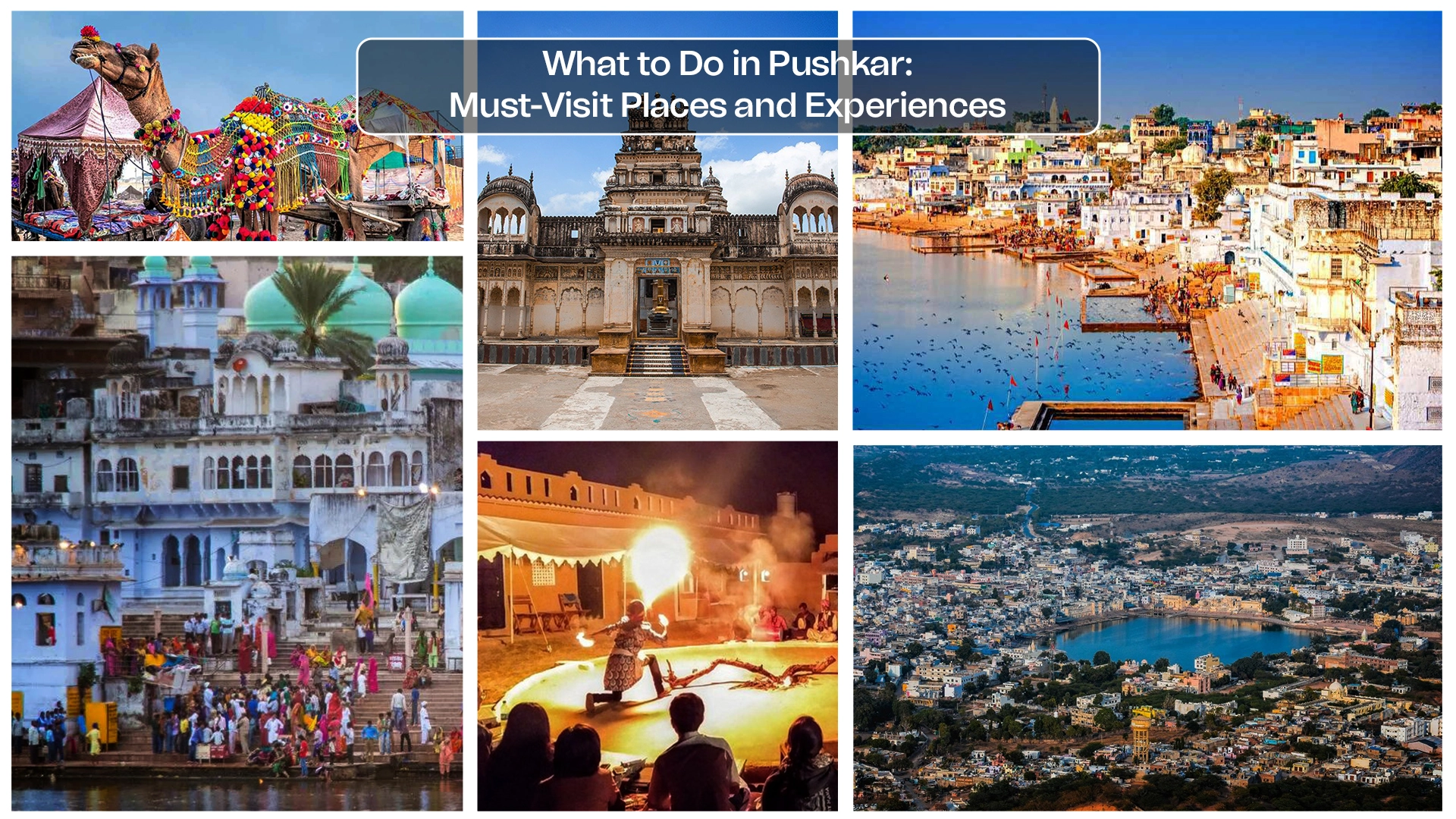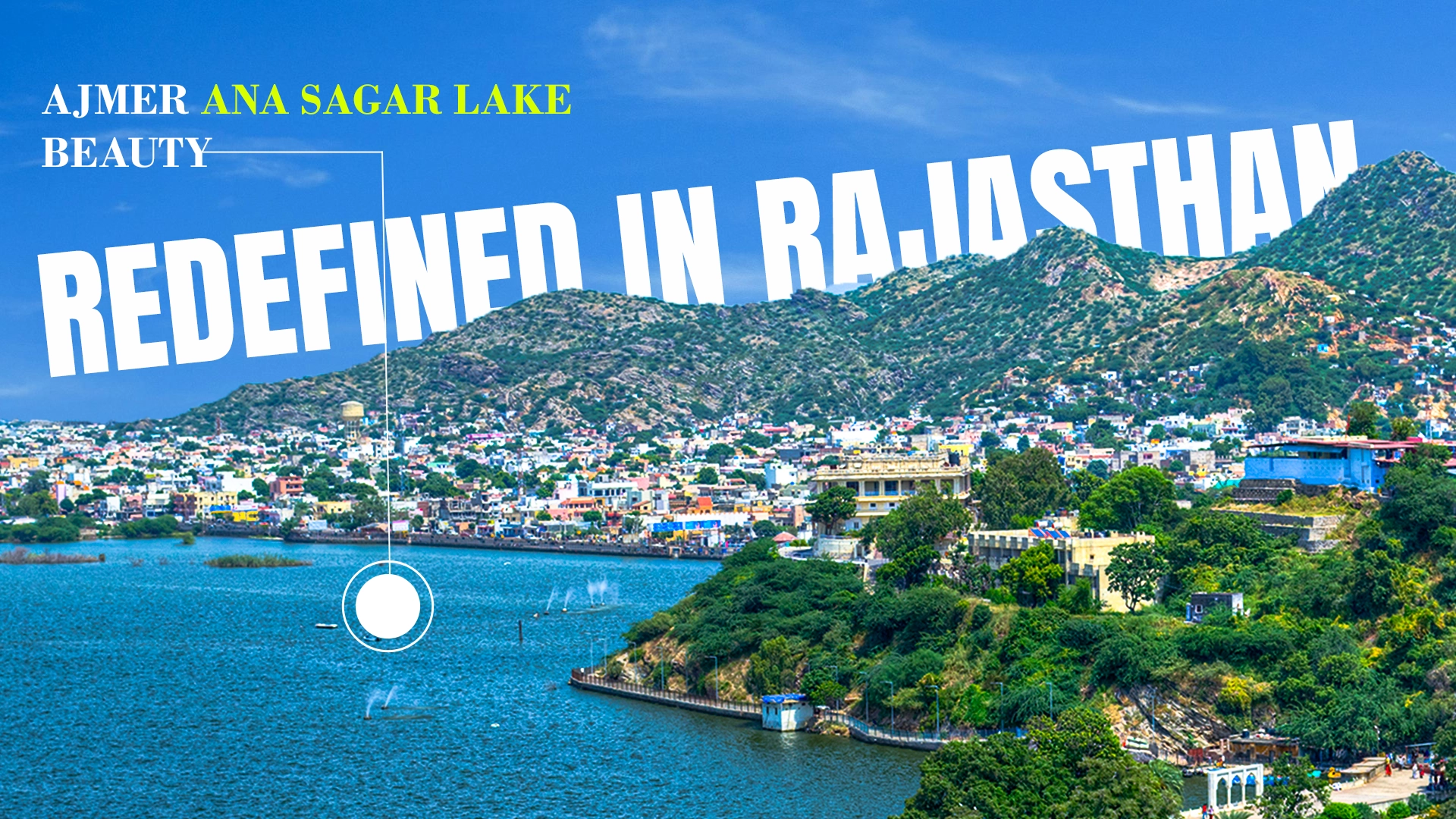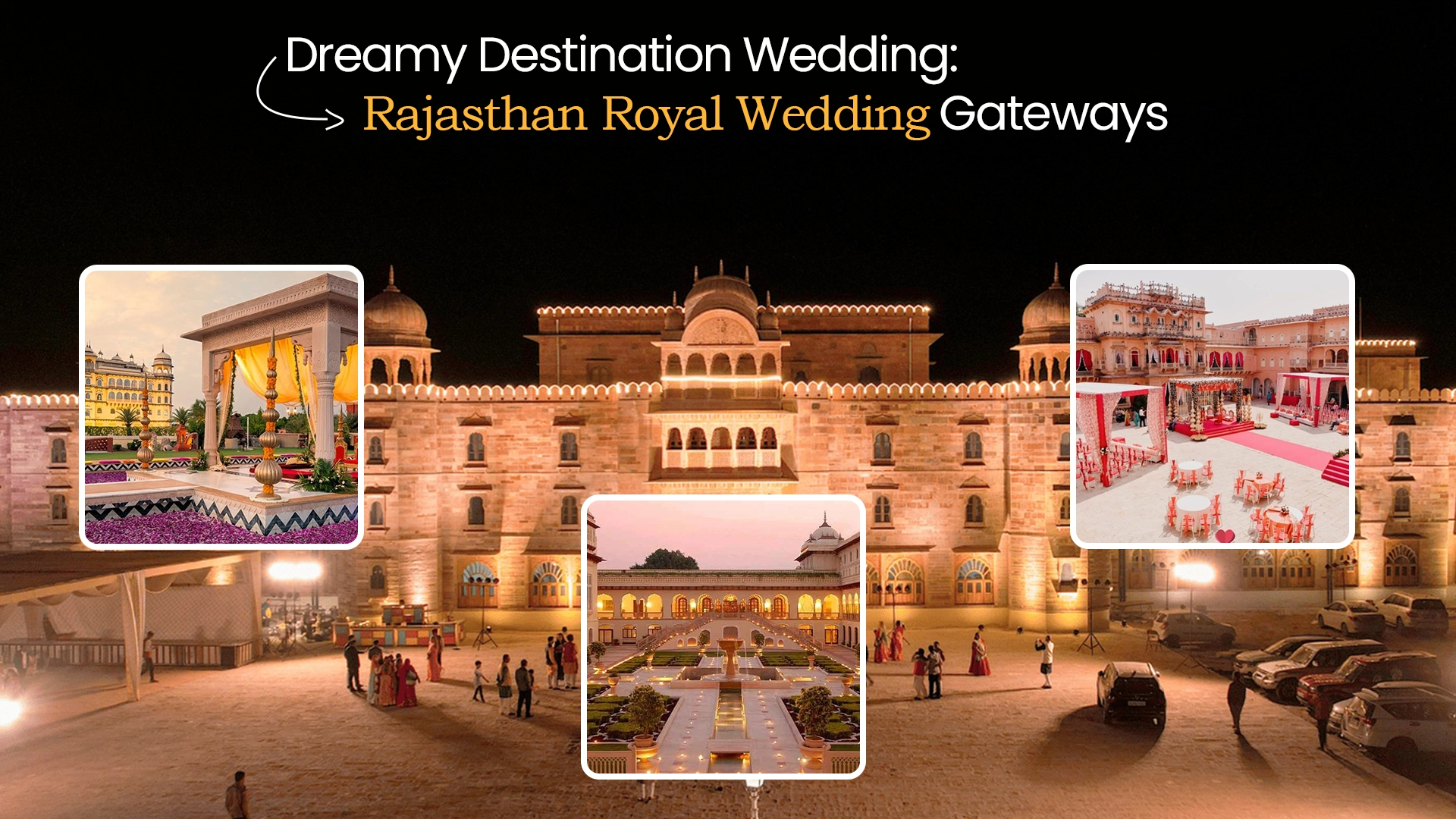
The Story of Pushkar Lake
Pushkar Lake stands as a revered site in India, cherished for its sacredness and rich history. Located in the town of Pushkar, Rajasthan, this lake holds deep cultural significance for Hindus and attracts pilgrims and tourists from around the world. Throughout the ages, Pushkar Lake has been a focal point for religious ceremonies, bathing rituals, and spiritual contemplation. Its tranquil waters and surrounding landscape create an atmosphere of serenity and devotion, making it a cherished destination for seekers of spiritual enlightenment. The Pushkar lake is a symbol of spiritual purity and sanctity in Hindu mythology and culture. Its presence resonates with the ancient traditions and beliefs that have been woven into the fabric of Indian society for centuries.
Pushkar Lake Story
According to Hindu mythology, the creation of Pushkar Lake is steeped in a fascinating legend that traces back to Lord Brahma, the creator deity in Hindu cosmology. Legend has it that Lord Brahma, the creator of the universe, was on a quest to perform a yagna (a sacred ritual) for the welfare of all beings. However, he needed to find a suitable location for the yagna, and as he surveyed the earth, he stumbled upon Pushkar. As Lord Brahma searched for a spot to perform the yagna, he discovered a lotus flower falling from his hand. The lotus flower landed at Pushkar, and where it fell, water sprang forth from the earth, forming the pristine Pushkar Lake. Enamored by the beauty and tranquility of the lake, Lord Brahma decided that Pushkar was the perfect place to conduct the yagna. He named the lake "Pushkar," which means lotus in Sanskrit, in honor of the lotus flower that had played a pivotal role in its creation. Since then, Pushkar Lake has been considered one of the most sacred bodies of water in India, drawing pilgrims and devotees who seek spiritual purification and blessings. The legend of its creation continues to be recounted and celebrated, adding to the mystique and reverence surrounding this ancient site.

Spiritual Importance of Pushkar Lake
Pushkar Lake holds immense spiritual importance for Hindus, serving as a place of pilgrimage and devotion for centuries. It is believed that a dip in the holy waters of Pushkar Lake can cleanse the soul of sins and lead to spiritual rejuvenation. For devout Hindus, visiting Pushkar Lake is an essential part of their religious journey. Pilgrims from all corners of India and beyond flock to the lake to perform sacred rituals, offer prayers, and seek blessings from the divine. The lake serves as a sacred site for various religious ceremonies and rituals conducted by priests and devotees throughout the year. Bathing in the waters of Pushkar Lake during festivals and auspicious occasions is considered highly auspicious and is believed to bestow divine grace upon the devotees. Hindus also believe in the purifying powers of Pushkar Lake. It is believed that the waters of the lake have the ability to cleanse the mind, body, and soul, washing away impurities and sins accumulated over lifetimes. This belief in the sanctity and purifying nature of Pushkar Lake adds to its spiritual significance and draws pilgrims seeking spiritual upliftment.

Cultural Heritage of Pushkar Lake
Pushkar Lake is a vibrant center of cultural heritage and traditions. The lake plays a pivotal role in various festivals and events that celebrate the rich cultural tapestry of Rajasthan and India as a whole. One of the most famous events held at Pushkar Lake is the Pushkar Camel Fair, a spectacular gathering that attracts thousands of visitors from around the world. The fair is a showcase of Rajasthan's cultural heritage, featuring colorful camel races, folk music and dance performances, traditional handicrafts, and vibrant market stalls selling local wares. Throughout the year, Pushkar Lake serves as a cultural hub for various activities and events, including religious processions, musical performances, and traditional ceremonies. Its serene surroundings and picturesque landscape provide an idyllic setting for cultural gatherings and celebrations. The lake also holds historical significance as it is surrounded by numerous temples, ghats, and sacred sites that reflect the architectural and cultural heritage of the region. These ancient structures stand as testimony to the enduring legacy of Pushkar Lake as a cultural and spiritual landmark, preserving the traditions and customs passed down through generations.

Ecological Significance of Pushkar Lake
As a natural body of water, the Pushkar lake plays a crucial role in sustaining local flora and fauna in the arid landscape of Rajasthan. The lake provides a vital source of water for the surrounding vegetation, including trees, shrubs, and aquatic plants. Its presence creates a microclimate that supports the growth of diverse plant species, contributing to the biodiversity of the region. Moreover, Pushkar Lake serves as a habitat for various species of birds, fish, and other aquatic organisms. It attracts migratory birds during certain seasons, offering them a sanctuary and feeding grounds amidst the desert landscape. However, Pushkar Lake faces challenges related to pollution, encroachment, and depletion of water resources. The influx of tourists and pilgrims, along with inadequate waste management infrastructure, poses a threat to the ecological balance of the lake. Efforts are underway to conserve and protect Pushkar Lake and its surrounding ecosystem. Conservation initiatives focus on water management, pollution control, and habitat restoration to ensure the long-term sustainability of this natural treasure.
Tourism at Pushkar Lake
Live like royalty in Pushkar! Jagat Singh Palace Hotel, a stunning palace reborn as a hotel, lets you experience history and luxury. This grand property boasts impressive architecture and spacious rooms. But wait, there's more! Select rooms offer breathtaking views of Pushkar Lake, the city's holy heart. Imagine waking up to a sunrise over the serene lake, and in the evenings, enjoy cool breezes and vibrant city lights from your private balcony. Jagat Singh Palace Hotel is your perfect escape to relax and soak in the magic of Pushkar.
Pushkar Lake is a magnet for tourists seeking a blend of cultural immersion, spiritual exploration, and natural beauty. The lake itself, along with its picturesque surroundings, temples, and ghats, offers a serene and enchanting atmosphere for visitors to experience. Tourist attractions around Pushkar Lake include the various temples dedicated to Hindu deities, each with its own unique architecture and significance. The ghats lining the lake provide a tranquil setting for meditation, reflection, and religious rituals. Visitors can also indulge in activities such as boating on the lake, exploring the bustling bazaars of Pushkar town, and witnessing the vibrant festivals and cultural events that take place throughout the year. The tourism industry has a significant economic impact on the local community, providing employment opportunities, supporting local businesses, and contributing to the overall socio-economic development of the region.
Pushkar Lake: A Sacred Oasis
Pushkar Lake stands as a multifaceted landmark, revered for its cultural, spiritual, and ecological significance. It is not merely a body of water but a symbol of India's rich heritage and enduring traditions. As a cultural center, Pushkar Lake embodies the essence of Rajasthan's vibrant culture, hosting festivals, rituals, and gatherings that celebrate the region's artistic and spiritual legacy. Spiritually, the lake holds profound significance for Hindus, serving as a place of pilgrimage and spiritual renewal for devotees seeking blessings and purification. Pushkar Lake remains a timeless symbol of India's cultural diversity, spiritual richness, and natural splendor. Its legacy continues to inspire awe and reverence, inviting visitors to explore and appreciate the beauty and history of this sacred landmark.





